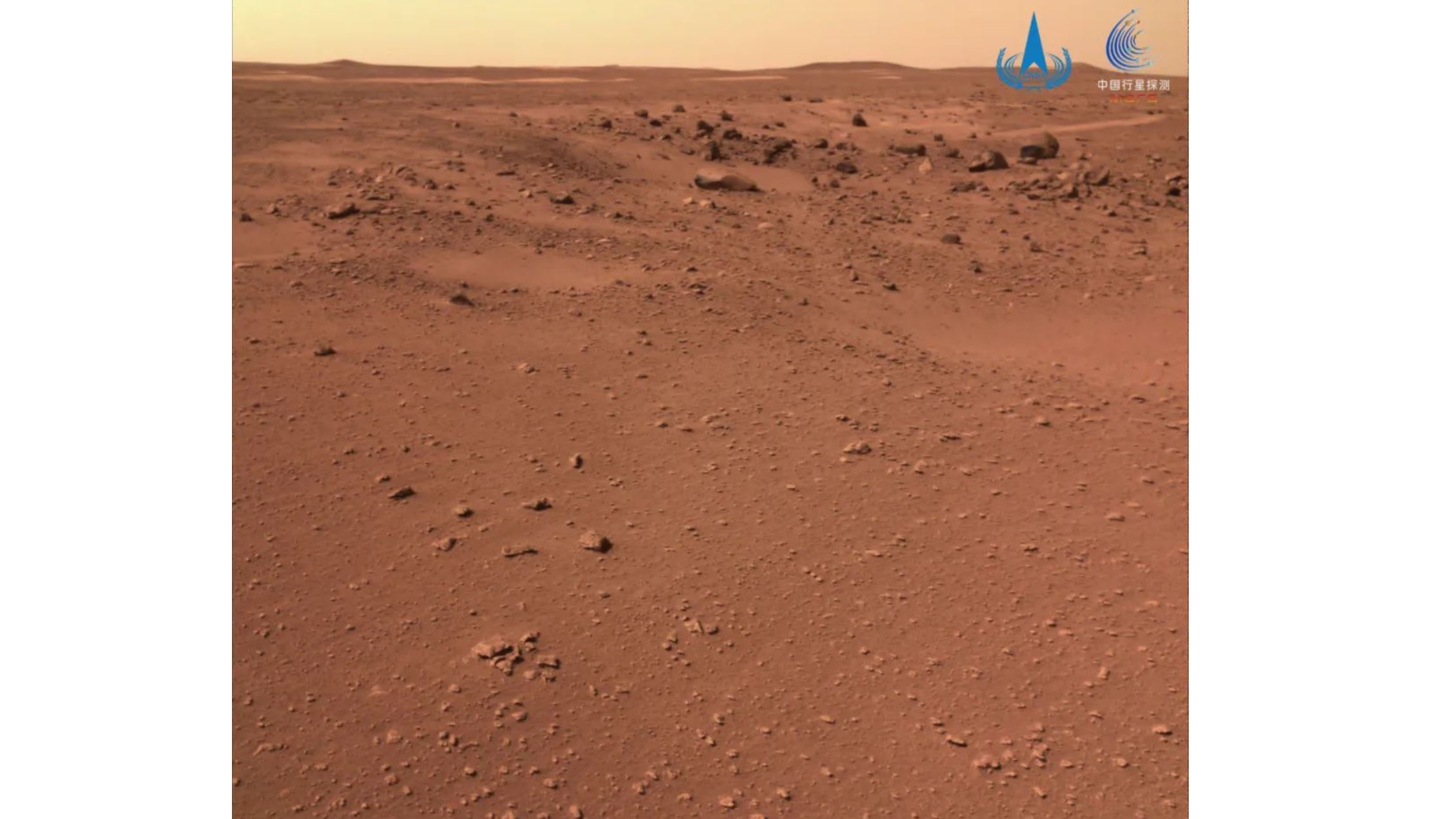China’s Zhurong Mars rover is adjusting to its first winter on the Red Planet while its companion orbiter continues to map the world from above.
Zhurong, part of China’s Tianwen-1 mission, has been operating in the vast basin of Utopia Planitia for 347 Martian days, or sols, and has traveled 6,302 feet (1,921 meters) across the planet’s surface, according to a May 6 update posted by the Chinese Lunar Exploration Program.
However, the rover is now receiving lower amounts of energy from the sun as winter takes hold in Mars’ northern hemisphere.
Related: See a sunrise on Mars in this stunning view from NASA’s InSight lander (photo)
To compensate, the Zhurong engineering team has adjusted the angle of the solar wings for maximum sun exposure and reduced the working hours of the spacecraft to control its energy usage.
Zhurong has an automated sleep mode which will kick in if energy levels fall below a set point, triggering hibernation until environmental conditions improve. The coldest period for Zhurong is expected to occur in July.
But for now, the rover’s work continues. A new image from Zhurong’s navigation and terrain camera reveals rocks disturbed by a meteor impact.
Meanwhile, in orbit, the Tianwen 1 spacecraft that carried Zhurong on the seven-month journey from Earth to Mars has continued its work from above.

That work has included capturing stunning images of the Red Planet. The orbiter’s medium-resolution camera captured an image of Valles Marineris on April 1, while the high-resolution camera imaged Triolet Crater on April 17.
Tianwen 1 initially acted mainly as a relay satellite for Zhurong roving operations but has since focused on its own science objectives.
Follow us on Twitter @Spacedotcom and on Facebook.

